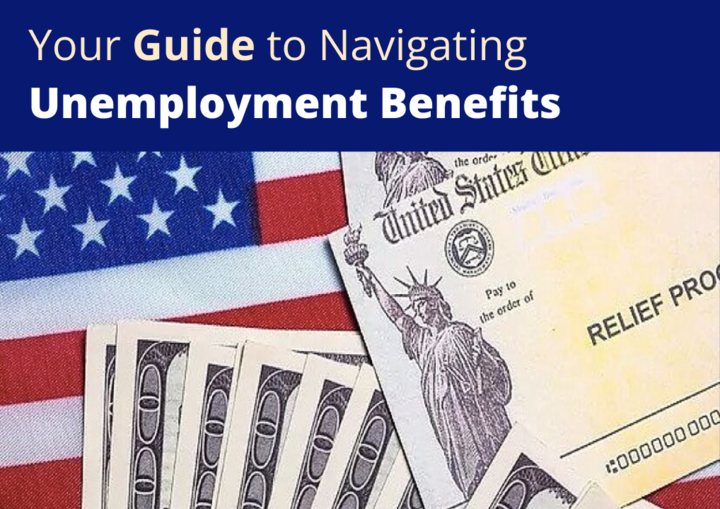Auto warranty scams have become increasingly prevalent in recent years, preying on unsuspecting vehicle owners who may not fully understand the intricacies of their vehicle’s warranty coverage. These scams often involve aggressive marketing tactics, misleading information, and high-pressure sales techniques designed to create a sense of urgency. Scammers typically pose as representatives of legitimate warranty companies or even as affiliates of the vehicle manufacturer, leading consumers to believe they are purchasing necessary coverage when, in fact, they are being duped into paying for services that may not exist or are grossly inflated in price.
One common tactic employed by these scammers is the use of robocalls or unsolicited emails that claim the consumer’s vehicle warranty is about to expire. These communications often include alarming language designed to provoke anxiety, suggesting that without immediate action, the consumer will be left unprotected. This fear-based approach can cloud judgment and lead individuals to make hasty decisions without fully understanding the terms and conditions of the warranty being offered.
As a result, many consumers find themselves trapped in contracts that offer little to no real value, leaving them vulnerable to financial loss.
Key Takeaways
- Auto warranty scams often involve high pressure sales tactics and unsolicited offers.
- Research the company offering the warranty to ensure legitimacy and reliability.
- Carefully read the fine print of the warranty to understand coverage and limitations.
- Avoid high pressure sales tactics by taking time to consider the offer and seeking other opinions.
- Verify coverage with the manufacturer or a trusted third party before making a decision.
Researching the Company
Before engaging with any company offering auto warranty services, thorough research is essential. Start by checking the company’s reputation through online reviews and ratings on platforms such as the Better Business Bureau (BBB) or Trustpilot. These resources can provide insight into the experiences of other consumers and highlight any red flags associated with the company.
A company with numerous complaints or a low rating may indicate potential issues with their service or legitimacy.
Additionally, it is prudent to investigate whether the company is registered and licensed to operate in your state.
Many states require auto warranty providers to be licensed, and checking this can help ensure that you are dealing with a legitimate business.
Furthermore, look for any affiliations with recognized industry organizations, such as the Vehicle Protection Association (VPA) or the National Association of Insurance Commissioners (NAIC). Membership in these organizations often signifies a commitment to ethical practices and consumer protection, providing an additional layer of assurance when considering a warranty provider.
Reading the Fine Print
When it comes to auto warranties, the fine print can often hold critical information that significantly impacts the value and effectiveness of the coverage being offered. It is essential to read all terms and conditions carefully before signing any contract. This includes understanding what is covered under the warranty, any exclusions that may apply, and the process for filing claims.
Many consumers overlook these details, only to discover later that their coverage does not include essential components or that certain repairs are excluded. Moreover, pay close attention to the duration of the warranty and any stipulations regarding transferability. Some warranties may only be valid for a limited time or mileage, while others may have restrictions on how they can be transferred if you decide to sell your vehicle.
Understanding these nuances can prevent unpleasant surprises down the line and ensure that you are making an informed decision about your auto warranty purchase.
Avoiding High Pressure Sales Tactics
High-pressure sales tactics are a hallmark of many auto warranty scams. Scammers often employ aggressive strategies designed to create a sense of urgency, pushing consumers to make quick decisions without adequate time for consideration. For instance, they may claim that a special promotion is about to expire or that only a limited number of warranties are available at a discounted rate.
This approach can lead individuals to feel rushed and anxious, ultimately resulting in poor decision-making. To combat these tactics, it is crucial to take a step back and evaluate the situation calmly. If a salesperson is pressuring you to make an immediate decision, it is advisable to walk away and take time to think about the offer.
Legitimate companies will respect your need for time to consider your options and will not resort to intimidation or coercion. Additionally, seeking advice from trusted friends or family members can provide valuable perspective and help you avoid falling victim to high-pressure sales tactics.
Verifying Coverage
Once you have identified a potential auto warranty provider, verifying the specifics of the coverage they offer is paramount. This involves not only understanding what repairs and services are included but also confirming how claims are processed and what limitations may exist.
For example, some warranties may require you to use specific repair shops or service centers, which can limit your options and potentially lead to higher out-of-pocket costs if you prefer a different mechanic.
Furthermore, inquire about the claims process itself. A reputable warranty provider should have a clear and straightforward procedure for filing claims, including necessary documentation and timelines for approval. Understanding these details upfront can save you significant frustration later on if you need to utilize your warranty coverage.
Additionally, ask about any deductibles that may apply when making a claim, as these can vary widely between different warranty providers.
Being Wary of Unsolicited Offers
Unsolicited offers for auto warranties are often red flags indicating potential scams. These offers typically come in the form of phone calls, emails, or direct mailings that claim you are eligible for an extended warranty on your vehicle. Scammers frequently use tactics such as spoofing caller IDs or creating fake websites that mimic legitimate companies to lend credibility to their offers.
As a result, it is crucial to approach unsolicited communications with skepticism. If you receive an unsolicited offer, do not engage with the caller or respond to emails without first verifying their legitimacy. Instead, take the time to research the company independently by looking up their contact information online and reaching out directly through official channels.
This will help ensure that you are not inadvertently providing personal information or financial details to a scammer posing as a legitimate business.
Seeking Legal Advice
In cases where you suspect you have fallen victim to an auto warranty scam or if you are facing difficulties with a warranty provider, seeking legal advice can be an important step in protecting your rights. An attorney specializing in consumer protection or contract law can provide valuable guidance on how to navigate disputes with warranty companies and may help you understand your options for recourse. Legal professionals can assist in reviewing contracts and identifying any deceptive practices that may have occurred during the sales process.
They can also advise on potential avenues for recovering lost funds or pursuing claims against fraudulent companies. In some instances, class-action lawsuits may be an option if multiple consumers have been affected by similar scams, providing a collective means of seeking justice.
Reporting Suspected Scams
If you encounter what you believe to be an auto warranty scam, reporting it is crucial not only for your protection but also for the safety of other consumers. Various agencies accept reports of fraudulent activity, including the Federal Trade Commission (FTC), state attorney general offices, and local consumer protection agencies. By reporting scams, you contribute to efforts aimed at holding scammers accountable and preventing them from targeting additional victims.
When reporting a suspected scam, provide as much detail as possible about your experience, including names of individuals involved, dates of communication, and any documentation related to the transaction. This information can assist authorities in investigating fraudulent practices and potentially taking action against those responsible. Additionally, sharing your experience on consumer review platforms can help raise awareness among other potential victims and contribute to a more informed public regarding auto warranty scams.
FAQs
What are auto warranty scams?
Auto warranty scams are fraudulent schemes where individuals or companies attempt to deceive car owners into purchasing unnecessary or fake extended warranties for their vehicles. These scams often involve misleading or high-pressure sales tactics.
How can I avoid auto warranty scams?
To avoid auto warranty scams, it’s important to research the company offering the warranty, read the fine print of any warranty agreement, and be cautious of high-pressure sales tactics. Additionally, be wary of unsolicited calls or mailings offering extended warranties and always verify the legitimacy of the offer before making any payments.
What are some red flags to look out for in auto warranty offers?
Some red flags to look out for in auto warranty offers include unsolicited calls or mailings, high-pressure sales tactics, requests for immediate payment, and offers that seem too good to be true. Additionally, be cautious of companies that are not well-known or have a poor reputation.
What should I do if I suspect I have been targeted by an auto warranty scam?
If you suspect you have been targeted by an auto warranty scam, you should report the incident to the Federal Trade Commission (FTC) and your state’s attorney general’s office. Additionally, you should contact your vehicle manufacturer or a trusted dealership to verify the legitimacy of the warranty offer.







